Classics of Medieval Spirituality (41 vols.)
Digital Verbum Edition
Overview
Delve into the rich tradition of the medieval church with over 40 volumes of works by men and women whose spiritual legacies benefit Christians today. Dialogue with Catherine of Siena, study with the early Dominicans, and reflect on the nature of God with Bernard of Clairvaux. The Classics of Medieval Spirituality collection—which incorporates a wide diversity of theological perspectives—provides titles from both famous authors and more obscure writers, as well as anthologies of poetry, mystical writing, apocalyptic literature, and other spiritual writings.
In the Verbum editions, these valuable volumes are enhanced by amazing functionality and features. Scripture and ancient-text citations link directly to English translations and original-language texts, and important terms link to dictionaries, encyclopedias, and a wealth of other resources in your digital library. The Topic Guide lets you perform powerful searches to instantly gather relevant biblical texts and resources. Tablet and mobile apps let you take the discussion with you. With Verbum Software, the most efficient and comprehensive research tools are in one place, so you get the most out of your study.
Looking for more resources from the Classics of Western Spirituality collection? Check out the Classics of Western Spirituality Bundle (126 vols.).
Key Features
- Presents texts on Christian spirituality from the medieval period
- Provides volumes from famous authors, lesser-known writers, and anonymous texts
- Includes the writings of Orthodox, Catholic, and dissenting mystics
Product Details
- Title: Classics of Medieval Spirituality
- Publisher: Paulist Press
- Volumes: 41
- Pages: 15,947
- Christian Group: Catholic
- Resource Type: Topical
- Topic: Spirituality
Individual Titles
- Albert and Thomas: Selected Writings edited by Simon Tugwell
- Anchoritic Spirituality: Ancrene Wisse and Associated Works translated by Anne Savage and Nicholas Watson
- Angela of Foligno: Complete Works translated by Paul Lachance
- Angelic Spirituality: Medieval Perspectives on the Ways of Angels translated by Steven L. Chase
- Anglo-Saxon Spirituality: Selected Writings translated by Robert Boenig
- Apocalyptic Spirituality: Treatises and Letters of Lactantius, Adso of Montier-en-der, Joachim of Fiore, the Spiritual Franciscans, Savonarola translated by Bernard McGinn
- Bernard of Clairvaux: Selected Works translated by Gillian Evans
- Birgitta of Sweden: Life and Selected Writings edited by Marguerite Tjader Harris
- Bonaventure: The Soul’s Journey into God, The Tree of Life, The Life of St. Francis edited by Ewert Cousins
- Carthusian Spirituality: The Writings of Hugh of Balma and Guigo de Ponte translated by Dennis D. Martin
- Catherine of Genoa: Purgation and Purgatory, the Spiritual Dialogue translated by Serge Hughes
- Catherine of Siena: The Dialogue translated by Suzanne Noffke
- Celtic Spirituality edited by Oliver Davies
- Devotio Moderna: Basic Writings translated by John H. Van Engen
- Dominican Penitent Women edited by Maiju Lehmijoki-Gardner
- Early Dominicans: Selected Writings edited by Simon Tugwell
- Elisabeth of Schönau: The Complete Works translated by Anne L. Clark
- Francis and Clare: The Complete Works translated by Regis J. Armstrong and Ignatius C. Brady
- Francisco de Osuna: The Third Spiritual Alphabet translated by Mary E. Giles
- Gertrude of Helfta: The Herald of Divine Love edited by Margaret Winkworth
- Hadewijch: The Complete Works translated by Columba Hart
- Henry Suso: The Exemplar, with Two German Sermons edited by Frank Tobin
- Hildegard of Bingen: Scivias translated by Columba Hart and Jane Bishop
- Jacopone da Todi: The Lauds translated by Elizabeth Hughes and Serge Hughes
- Jean Gerson: Early Works translated by Brian Patrick McGuire
- Johannes Tauler: Sermons translated by Maria Shrady
- John Ruusbroec: The Spiritual Espousals and Other Works translated by James A. Wiseman
- Julian of Norwich: Showings translated by Edmund Colledge and James Walsh
- Late Medieval Mysticism of the Low Countries edited by Rik Van Nieuwenhove, Robert Faesen, and Helen Rolfson
- Margaret Ebner: Major Works edited by Leonard P. Hindsley
- Marguerite Porete: The Mirror of Simple Souls translated by Ellen Babinsky
- Mechthild of Magdeburg: The Flowing Light of the Godhead translated by Frank Tobin
- Meister Eckhart: The Essential Sermons, Commentaries, Treatises, and Defense translated by Edmund Colledge
- Meister Eckhart: Teacher and Preacher edited by Bernard McGinn
- Nicholas of Cusa: Selected Spiritual Writings translated by H. Lawrence Bond
- Norbert and Early Norbertine Spirituality compiled by Theodore J. Antry and Carol Neel
- Richard of St. Victor: The Twelve Patriarchs, The Mystical Ark, Book Three of the Trinity translated by Grover A. Zinn
- Richard Rolle: The English Writings edited by Rosamund S. Allen
- The Cloud of Unknowing edited by James Walsh
- The Pursuit of Wisdom and Other Works, by the Author of The Cloud of Unknowing edited by James Walsh
- Walter Hilton: The Scale of Perfection translated by John P. H. Clark and Rosemary Dorward
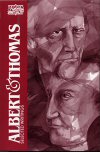
This volume contains writings by two thirteenth-century Dominicans, both doctors of the church. The two writers are St. Albert the Great (1200–1280), patron saint of natural scientists, and the “common doctor,” St. Thomas Aquinas. Both are famous for their contributions to philosophy and theology, but they are also both important in the history of spirituality.
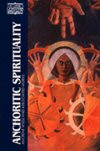
In the first quarter of the thirteenth century a number of works were written for anchoresses, women who lived as religious recluses in cells adjoining churches. The most influential is Ancrene Wisse (A Guide for Anchoresses), which discusses in great detail the daily life of the anchoress, both outer and inner. This work gives a detailed sense of a powerful and multifaceted spirituality different from that of other mystics.
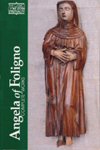
Angela of Foligno (c. 1248–1309) is one of the most outstanding representatives of the Franciscan and Christian mystical tradition. Her book, published here in English for the first time, describes her passionate love affair with the “suffering God-man,” and her teachings in the form of letters and exhortations to her spiritual progeny.
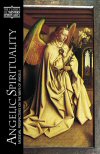
This volume explores the extensive landscape of angels in medieval Christian devotion and retrieves a very rich and unique Christian spiritual tradition.
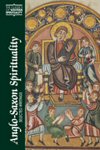
Anglo-Saxon Spirituality presents a wide-ranging selection of Anglo-Saxon writings both in poetry and prose. There are sermons extolling the heroism of saints, homilies explaining church festivals and customs, poetical paraphrases of excerpts from the Bible, visions of Judgment Day, allegories, hagiographies and didactic pieces, as well as the celebrated Dream of the Rood and Cædmon’s Hymn, the earliest known English poems.
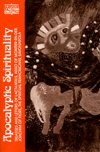
Apocalyptic Spirituality: Treatises and Letters of Lactantius, Adso of Montier-en-der, Joachim of Fiore, the Spiritual Franciscans, Savonarola
- Translator: Bernard McGinn
- Series: The Classics of Western Spirituality
- Publisher: Paulist Press
- Publication Date: 1979
- Pages: 352
Apocalyptic Spirituality makes available major texts of Christian apocalyptic literature from the fourth to the sixteenth centuries. The apocalyptic tradition is that of traditional philosophy based on Revelation and concerned with the end of the world.
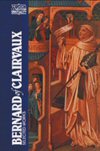
Featuring a new translation by G.R. Evans, Bernard of Clairvaux’s writings have played a major role in shaping the Western monastic tradition and influencing the development of Roman Catholic mystical theology. Together with an introduction by the master of Bernard studies, Jean Leclercq, they comprise a volume that occupies a place of special importance in the chronicle of the history of the Western spiritual adventure.
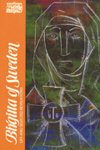
This volume contains four key documents of Birgittine literature: the Life of Blessed Birgitta, the complete fifth and seventh books of her Revelations, and her Four Prayers. Of the present volume, Birger Bergh, prominent Birgittine textual critic, writes: “This translation, done by a translator with a sensitivity of style and with genuine understanding of the Birgittine world, gives a perfect picture of the Latin original and its fluent diction.”
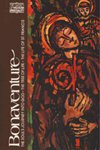
Named “The Prince of Mystics” by Leo XIII, Bonaventure (1217–1274), friar and professor at the University of Paris, was considered a great spiritual master in his own lifetime. These great works show the core of his vision.
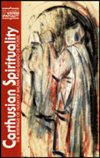
Translated here for the first time in their entirety in English are the extant writings of two little known thirteenth-century Carthusians who had great influence on Christian spirituality.
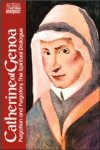
Catherine of Genoa Catherine of Genoa (1447–1510), a married lay woman, was a mystic and a humanitarian, and a constant contemplative who cared for the sick and destitute. Purgation and Purgatory is a collection of sayings on spiritual purification in this life and the next. The Spiritual Dialogue gives us a readable and coherent inner history of Catherine.
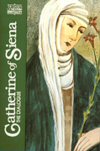
Catherine of Siena (1347–1380), mystic and doctor of the Roman Church, wrote The Dialogue, her crowning spiritual work, for “the instruction and encouragement of all those whose spiritual welfare was her concern.”
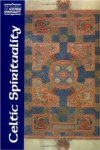
This volume offers translations of numerous texts from the Celtic tradition from the sixth through the thirteenth centuries, in a cross-section of genres and forms, including saints’ lives, monastic texts, poetry, devotional texts, liturgical texts, apocryphal writings, exegetical texts, and theological treatises.
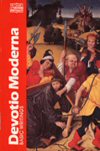
This volume consists of basic texts that reveal the spirituality of the Modern Devout, especially during the early years of the movement from 1380 to 1430. The “Modern Devotion” movement, which was originated by a Dutchman, Master Geerte Grote, is the classic expression of later medieval religious life.
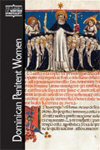
This volume examines the way of life of Dominican laywomen in Italy. It includes religious rules, hagiographical texts, and women’s own writings spanning the thirteenth to sixteenth centuries.
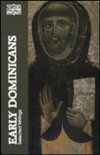
The spirituality of St. Dominic and his early followers was a force in thirteenth-century Europe. This volume contains a selection of works that represent the simplicity, ruggedness and clarity of the Dominicans’ biblically based, Christ-centered spirituality.
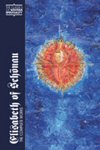
This volume contains the complete works of Elisabeth of Schönau (1129–1165), a Benedictine nun and visionary whose prophetic message brought consolation to the people of her day and a call for firmness of faith and the moral life.

Francis (c. 1182–1226) and Clare (c. 1193–1254) together shaped the spirituality of early thirteenth-century Europe. This volume contains their complete writings, brought together in one volume in English for the first time.
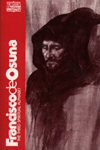
Francisco de Osuna (c. 1492–c. 1540), Spanish Franciscan and mystic, wrote a series of maxims as a practical guide for recollection. These were arranged into a series of “spiritual alphabets,” this being the third.
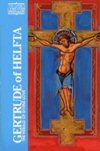
This volume contains revelations given by God to Gertrude of Helfta, a German Benedictine nun, in the thirteenth century concerning his great love for sinful man and the way in which man should respond to that love.
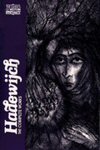
Hadewijch, a Flemish Beguine of the thirteenth century, is undoubtedly the most important exponent of love mysticism and one of the loftiest figures in the Western mystical tradition.
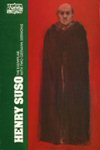
This volume presents a masterpiece of medieval literature and spirituality from the fourteenth-century German Dominican mystic Henry Suso (1300–1366).
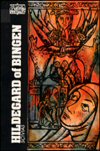
This work contains the 26 visions of Hildegard of Bingen (1098–1179), who was the first of the great German mystics, as well as a poet and a prophet, a physician, and a political moralist.
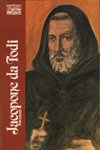
Jacopone da Todi (c. 1230–1306) was a Franciscan and a poet. His Lauds have long had an established place in the history of Italian poetry.

This volume contains the seminal writings of Jean Gerson (1363–1429), chancellor of the University of Paris, academic, humanist, Christian teacher and reformer, and one of the greatest theologians and mystical writers of the Middle Ages.
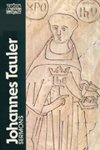
One of the most influential German mystical writers of the fourteenth century, Johannes Tauler (c. 1300–1361) spent his life as a mendicant preacher in the Order of Preachers. These selected sermons show Tauler’s emphasis on the via negativa together with his insistence on the importance of cataphatic mysticism and the merits of an active life.
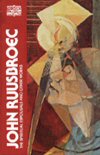
This volume consists of four of the major treatises of John Ruusbroec (1293–1381), fourteenth-century Flemish mystic, in contemporary English translation.

This volume contains witty and startling perceptions of the “feminine” nature of God by one of the greatest of all English mystics. Julian of Norwich (1342–c.1423) was an anchoress who lived in solitude in Norwich, England.
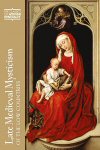
This book contains translations and introductions to some of the major representatives of the spiritual tradition of the Europe’s Low Countries from the fourteenth century onward.

This volume contains the first English translation of the major works of Margaret Ebner (1291-1351), fourteenth-century German Dominican nun and mystic. Her Revelations record the events of her spiritual journey for over 50 years of her life and reveal her gradual growth in holiness and deeper conversion to Christ.
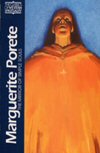
Margaret Porete (ca. 1310) was a beguine from Hainaut who was burned at the stake as a relapsed heretic. This volume contains the first modern English translation of the complete text of The Mirror, written between 1296 and 1306. It is a theological treatise that analyzes how love in humans is related to divine love and how the soul may experience a lasting union with God in this life.
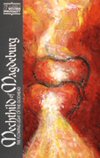
This volume contains the first English translation of The Flowing Light of the Godhead, the sole mystical visionary work of Mechthild of Magdeburg (c. 1260–c. 1282/94), a thirteenth-century German beguine. This challenging work of deep religious insight reflects Mechthild’s inner life, and God’s as well, employing a great variety of traditional medieval literary forms and genres in prose and verse.
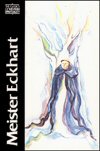
Meister Eckhart (c. 1260–1327) was a Dominican philosopher and spiritual master whose thought is among the most daring and difficult in the history of western mysticism. This volume contains his technical Latin writings and popular German sermons.
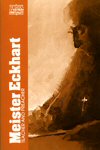
This volume consists of texts that illustrate the diversity of one of the most enigmatic and influential mystics of the Western Christian tradition. Meister Eckhart (c. 1260–1327) is represented here as teacher, with commentaries, and preacher, with sermons.
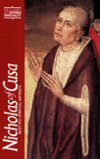
For the first time in one volume in English are the spiritual writings of Nicholas of Cusa (1401–1464), this outstanding intellectual figure whose work anticipated modern problems of ecumenicity and pluralism, empowerment and reconciliation, and tolerance and individuality.
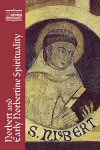
This volume contains a collection of writings, appearing for the first time in English, pertaining to the spirituality of the twelfth-century Norbertines. They are also known as the Order of Premonstratensians, the religious order founded by St. Norbert of Xanten.

This volume contains the writings of Richard of St. Victor (?–1173), the man who was the great link between the early Christian mystics and the mystical awakening in medieval Europe. Richard was born in Scotland and joined the Abbey of St. Victor in Paris, where he became superior and prior.
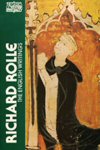
This volume includes a translation of the major prose works, several of the ascribed lyrics and a selection of the commentaries written in English by Richard Rolle (c. 1300–1349), fourteenth-century English mystical writer and hermit.
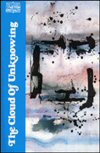
Written by an anonymous English monk during the late fourteenth century, The Cloud of Unknowing puts forth a method of contemplation that stresses the importance of the understanding to break through the cloud of unknowing that separates God and humanity.
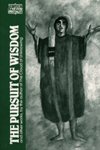
This volume includes modern English translations of The Pursuit of Wisdom and five other essays by the unknown fourteenth-century mystic who wrote The Cloud of Unknowing.
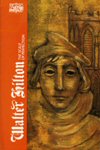
This volume contains spiritual writings of Walter Hilton (c. 1343–1396), fourteenth-century English Augustinian Canon. Hilton speaks for himself in The Scale of Perfection, and the introduction and notes give the reader orientation.
Key Features
- Presents texts on Christian spirituality from the medieval period
- Provides volumes from famous authors, lesser-known writers, and anonymous texts
- Includes the writings of Orthodox, Catholic, and dissenting mystics
Product Details
- Title: Classics of Medieval Spirituality
- Publisher: Paulist Press
- Volumes: 41
- Pages: 15,947
- Christian Group: Catholic
- Resource Type: Topical
- Topic: Spirituality
